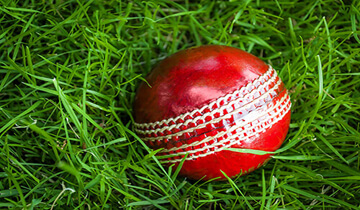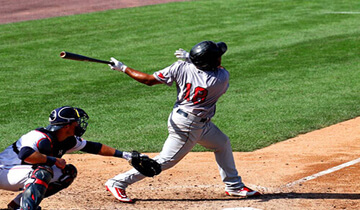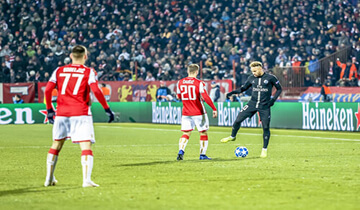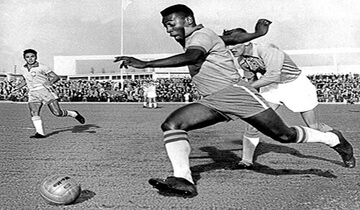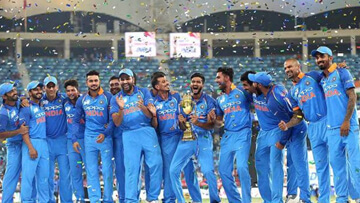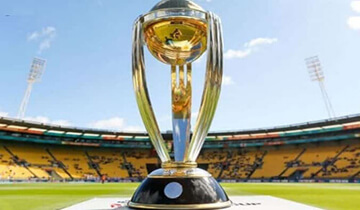Fall Kicks Off Youth Soccer Season - When Does the Season Start?
The majority of youth soccer leagues start their seasons in early fall, usually August or September.
Season Length
The season lasts around 8-10 weeks, winding down in October or November before the holidays. This aligns with the school calendar, allowing kids to play after school or on weekends.
Registration Deadlines
For parents, the planning starts much earlier in the summer.
Sign Up Early
Registration deadlines are often in June or July for fall soccer leagues, so it’s important to check your local league dates and sign up on time. Most leagues have a registration period that lasts a few weeks or a month.
Practices and Games
Once registered, practices will start 1-2 weeks before the first games.
Game Days
Games are often played on Saturdays, with many leagues offering a weekday evening game too.
Benefits for Kids
The fall youth soccer season is a great way for kids to be active, build teamwork skills, and make new friends. As long as you register by the deadline, you’ll be ready to cheer on your young soccer star this fall!
123
High School Soccer: A Seasonal Guide - The Start of the Season
The official start of high school soccer season varies by state, but games typically commence in August or September as schools reopen for the year.
Preseason Preparations
As summer winds down and students return to school, high school soccer teams begin preparing for another exciting season. Across the country, high school soccer generally aligns with the academic calendar, kicking off in late summer and continuing through the fall months.
Regular Season Play
The regular season then progresses through the fall, with most teams playing 1-2 games per week. Regular season matches wrap up in October or November.
Game Frequency
Most high school teams have 1-2 games scheduled per week during the regular season. This allows for practices and rest days in between competitions.
Postseason Playoffs
Postseason play extends the soccer season into late fall. Most states hold regional playoffs in October and November, leading up to state championship tournaments in November or early December. The timing of playoffs and championships can stretch later for states with cooler climates.
State Championships
The playoffs culminate with state title games, usually held in November or December. Winning a state championship is the ultimate goal for high school soccer teams.
Highlights of the Season
For high school soccer players, the fall season is a highly anticipated tradition. Despite grueling practices and hard-fought games, the camaraderie of a high school soccer team creates lasting memories. From the first whistles in late summer heat to the final penalty kick with a state title on the line, high school soccer represents a beloved fall ritual for athletes and communities alike.
The College Soccer Season: A Yearly Tradition - Preseason Prepares Teams for Upcoming Season
August Brings Intense Practices and Scrimmages
As summer comes to an end, a new school year brings an exciting tradition - the college soccer season. Across the country, college soccer teams start gearing up in August for the upcoming season. Preseason brings intense practices and scrimmages as teams get ready for the official start of the season.
Official Games Begin in September
Conference Matchups Create Rivalries
The regular season of college soccer begins in September and runs through November. During these months, college teams compete in intense conference matchups to jockey for position in their conference standings. Teams play for a chance to compete in their conference tournaments at the end of the season.
Conference games bring exciting rivalries between schools. Students, parents, alumni, and other fans turn out to cheer on their teams. The enthusiastic crowds and school spirit create an electric atmosphere at college soccer stadiums in the fall.
November Brings the NCAA Soccer Tournament
Single Elimination for the National Title
The pinnacle of the college soccer season is the NCAA Division I tournament. This tournament starts in late November and runs through early December. 64 teams compete in a single-elimination bracket to ultimately be crowned national champions.
Reaching the NCAA tournament is a huge accomplishment and thrill for college soccer programs. The tournament culminates with the College Cup, where semifinals and the national championship game take place. This event concludes another exciting college soccer season.
Camaraderie and Competition
From preseason practices to the final championship game, the college soccer season is a beloved tradition. For players, students, and fans, it represents camaraderie, competition, and lifelong memories. As summer comes to a close, the start of a new soccer season brings anticipation and excitement on campuses across America.
MLS Season - Regular Season
The Major League Soccer (MLS) season is an annual soccer competition featuring 28 teams across the United States and Canada. The 2023 season will kick off in late February and run through the Fall, concluding in December with the MLS Cup championship game.
Spring Through Fall
The regular MLS season starts in the Spring and continues through the Fall months. Each team plays 34 regular season matches from February through October. The top seven teams from the Eastern and Western conferences qualify for the playoffs, along with any club with the next best record.
Playoffs
Late October Through November
The playoffs begin in late October and include 13 clubs vying for the MLS Cup. The postseason uses a direct elimination format with home-and-away matches throughout November. This culminates with the single-game MLS Cup final in early December between the top teams from each conference.
Key Dates
- Late February: Regular season begins
- October: Regular season ends
- Late October: Playoffs start
- November: Conference finals
- Early December: MLS Cup final
The lengthy MLS campaign keeps action going through the hot summer months and cold late Fall weather. With both the regular season and playoffs, MLS offers nine months of high-level professional soccer across North America.
European Football League Schedules - Major European Leagues Follow a Similar Schedule
Most major European leagues, including the Premier League, La Liga, Bundesliga, Serie A, and Ligue 1 follow a similar schedule that runs from late summer through spring.
Start of the Season
The majority of leagues begin their seasons in August or early September. This lines up with the end of summer vacations and allows leagues to take advantage of good weather in the autumn months.
League Matches
-
League matches are generally played on weekends, with teams playing one match per week.
-
The season spans August/September to May.
Winter Break
-
There is a winter break in December and January.
-
During the break, cup competitions like the FA Cup and Copa del Rey take center stage.
-
The winter break provides a respite amidst the grueling season schedule.
Cup Competitions
- UEFA Champions League and Europa League add midweek fixtures as well.
End of the Season
-
The season culminates in May, with champions crowned, European places secured, and relegation/promotion settled.
-
This allows a break before international tournaments in June and club friendlies in July/August.
Exceptions
While the Scandinavian leagues run a different schedule aligned with the calendar year due to weather conditions, the major European leagues follow a remarkably similar August-May schedule.
Staying Sharp in the Offseason: A Soccer Training Plan
Keep Playing Year-Round
The key to offseason success is year-round play. While it’s important to let the body recover after a long season, completely stopping soccer activity can lead to loss of skills and fitness.
Indoor and Futsal Leagues
Indoor soccer leagues and futsal are great ways to keep touching the ball in the off months. The compressed playing area challenges players to operate in tight spaces and make quick decisions.
Backyard Training
Backyard training with friends is another easy way to maintain skills. Organizing small-sided games or practicing footwork keeps muscles memories sharp for next season.
Maintain Physical Conditioning
Offseason training should also focus on improving physical conditioning. Preseason practices can be intense after a summer off, leading to injury risk.
Cardiovascular Fitness
Maintaining a base level of cardio through running, biking or swimming helps avoid this “shock” to the system.
Strength Training
Strength training is also beneficial, targeting muscles used in soccer movements like sprinting, cutting and jumping. Focus on compound lifts as well as single-leg stability exercises.
The offseason period is short for competitive players. With the right blend of skill training and conditioning, players can keep improving during the off months. Come next season, they’ll be physically and technically primed to excel on the field. Consistent, year-round training is the key to taking your game to the next level.
Conclusion
The Annual Soccer Season Plan
Soccer is a sport that is played year-round by both amateurs and professionals. While leagues and tournaments may differ around the world, there is a general annual cycle that the soccer season follows. Here is an overview of what to expect in a typical soccer year:
Youth Soccer
- The youth soccer season usually aligns with the school year, running from August/September through May/June.
- Registration for most youth leagues opens in the spring or early summer for the upcoming fall season. Tryouts may be held in late spring/early summer.
- Practices start up in late summer leading up to the first games in early September.
- The season includes weekly games and practices through the fall.
- Many youth teams also play in indoor winter leagues from January to March.
- Championships and tournaments are held in the late spring/early summer before the season ends.
High School Soccer
- The high school soccer season also falls in line with the academic year.
- Tryouts are held in late summer around August before the school year begins.
- Official practices begin a couple weeks before the first games in early September.
- Teams play regular season games through October and November.
- High school soccer playoffs happen in November, with state championships in late November or early December.
College Soccer
- College soccer starts up in mid-August with exhibition games and practices.
- The regular NCAA Division 1 season runs from late August through early December.
- NCAA championship tournaments take place in November and December.
- Many college players also compete in college club leagues from January through April after the varsity season ends.
Professional Soccer
- Most pro soccer leagues around the world run from August/September through May.
- In MLS, the regular season starts in early March and runs through late October. The playoffs take place in November.
- The European seasons typically kick off in mid-August, break for the holidays in December/January, and wrap up in May.
- International tournaments like the World Cup disrupt the regular pro league seasons, taking place during the summer months.
The annual soccer calendar provides a guide for when each type of soccer season typically begins and ends. Local league and tournament schedules may vary, so be sure to check with your own teams and organizations for specifics on registration, tryouts and opening games as the season approaches each year.


































